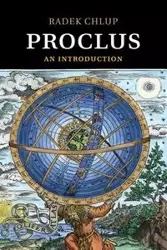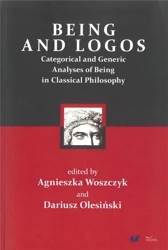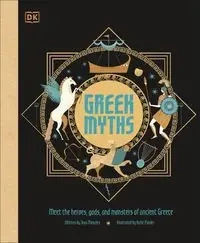Książki filozoficzne po angielsku
( ilość produktów: 21 )Książki obcojęzyczne - Filozofia : Angielski

Aristotle's Ethics and Politics - Aristotle
- Autorzy:

A Brief History of Equality - Thomas Piketty
- Autorzy:

Women Who Run With The Wolves - Clarissa Estes Pinkola
- Autorzy:
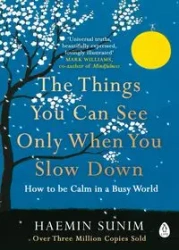
The Things You Can See Only When You Slow Down - Sunim Haemin
- Autorzy:
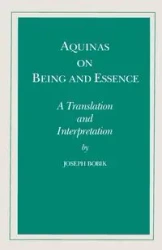
Aquinas on Being and Essence - Joseph Bobik
- Autorzy:

Archaeology of Knowledge - Michel Foucault
- Autorzy:
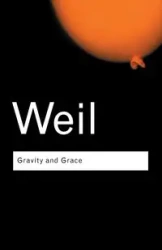
Gravity and Grace - Simone Weil
- Autorzy:
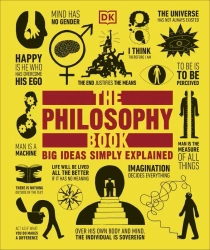
The Philosophy Book. Big Ideas Simply Explained wer. angielska - Opracowanie zbiorowe
- Autorzy:

Philosophy of the Home - Coccia Emanuele
- Autorzy:

The Physics. Writings on Natural Philosophy

Mythos - Stephen Fry
- Autorzy:

Dreamland - Sam Quinones
- Autorzy:

Goodbye Things - Sasaki Fumio
- Autorzy:
Wybór książek filozoficznych po angielsku
Jeśli interesuje Cię filozofia i chciałbyś poszerzyć swoją wiedzę na ten temat po angielsku, to kategoria "Książki o filozofii po angielsku" w naszej księgarni Matfel.pl jest właśnie dla Ciebie. Znajdziesz tu wiele fascynujących książek, które będą nie tylko cennym źródłem wiedzy, ale również inspirującymi lekturami.
Książki filozoficzne po angielsku
W tej kategorii znajdziesz wiele znakomitych książek po angielsku, które przedstawiają różne dziedziny filozofii. "Philosophy: A Very Short Introduction" autorstwa Edwarda Craiga to świetny przykład. Ta kompendium filozofii przedstawia skrótową wiedzę na temat różnych nurtów filozoficznych, takich jak epistemologia, etyka, metafizyka i wiele więcej.
Inną ciekawą propozycją jest książka "Sophie's World" autorstwa Jostein Gaardera. To książka, która wprowadza czytelnika w świat filozofii przez historię młodej dziewczyny o imieniu Sophie. Ta powieść filozoficzna porusza wiele ważnych tematów, takich jak istnienie Boga, natura rzeczywistości i sens życia.
Książki po angielsku o filozofii
Jeśli szukasz bardziej szczegółowych informacji na temat określonej dziedziny filozofii, możesz skorzystać z różnych książek w tej kategorii. Na przykład "The Extended Mind: The Internet as Cognitive Extension" autorstwa Annie Crawford to praca badająca wpływ internetu na nasze myślenie i percepcję. Ta książka przedstawia kontrowersyjne tezy dotyczące roli technologii w naszym postrzeganiu rzeczywistości.
Innym ciekawym tytułem jest "Meditations" autorstwa Marka Aureliusza. Ta klasyczna praca filozoficzna jest zbiorem myśli i refleksji cesarza-rzymskiego na temat moralności, szczęścia i życia. Mimo że została napisana wiele wieków temu, wciąż jest aktualna i ukazuje uniwersalne prawdy filozoficzne.
Książki o filozofii w języku angielskim
W kategorii "Książki o filozofii po angielsku" znajdziesz również książki, które przybliżą Ci życie i myśli znanych filozofów. Na przykład książka "Socrates: A Man For Our Times" autorstwa Paula Johnsona przedstawia biografię Sokratesa, jednego z najbardziej wpływowych filozofów w historii. Ta praca pokazuje, jakie były jego poglądy i jakie znaczenie ma jego filozofia w dzisiejszym społeczeństwie.
Inną interesującą pozycją jest "Existentialism Is a Humanism" autorstwa Jean-Paul Sartre'a. Ta krótka książka przedstawia podstawowe zasady i idee egzystencjalizmu. Autor omawia koncepcje takie jak wolność, egzystencja, odpowiedzialność i znaczenie życia.
Książki filozoficzne po angielsku
Księgarnia Matfel.pl oferuje bogatą kolekcję książek filozoficznych po angielsku, które spełnią oczekiwania zarówno początkujących, jak i zaawansowanych filozofów. Niezależnie od tego, czy interesuje Cię filozofia starożytna, filozofia współczesna czy teoria poznania, znajdziesz tu wiele interesujących i wartościowych książek.
Przeglądaj kategorię "Książki o filozofii po angielsku" i odkrywaj fascynujące treści, które poszerzą Twoją wiedzę i zainspirują do myślenia. Niezależnie od tego, czy czytasz dla przyjemności czy z powodu zainteresowania akademickiego, Matfel.pl ma wiele interesujących i wartościowych książek filozoficznych do zaoferowania.



